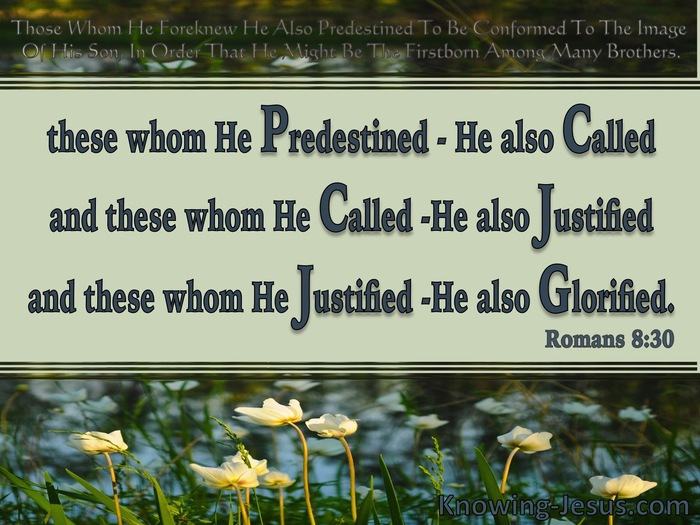22 Bible Verses about decisions
Most Relevant Verses
And Jesus answered, "The foremost one is this [Deut. 6:4-5], 'Hear this, you Israelites, the Lord our God is the only Lord, and you must love the Lord your God with all your heart, with all your soul, with all your mind and with all your strength.' The second one is this, 'You must love your neighbor the same way that you love yourself.' There is no other commandment greater than these [i.e., love for God and man]."
One of them, a teacher of the law of Moses, asked Him a question [in an attempt] to test Him. "Teacher, which one is the greatest commandment in the law of Moses?" he asked. Jesus replied, [Deut. 6:5] "'You must love the Lord your God with all your heart, with all your soul and with all your mind.'read more.
This is the foremost and greatest commandment. A second one, similar to it is [Lev. 19:18], 'You must love your neighbor the same way that you love yourself.' The entire law of Moses and the prophets hinge on these two commandments."
If you love me, you will obey my commandments. "And I will ask the Father and He will give you another Helper [i.e., besides me], who will be with you forever. He is the Holy Spirit of truth [i.e., who reveals truth], whom the world cannot receive, for it does not see Him or know Him. [But] you know Him, for He lives with you, and will be within you.
Therefore, everything that you would like people to do to you, do [these things] to them also. For this is [what is required by] the law of Moses and the prophets.
And whatever you would like people to do to you, do the same thing to them.
For [the commandments are: Ex. 20:13ff], "You must not be sexually unfaithful to your mate. You must not murder. You must not steal. You must not have a strong desire for what belongs to someone else." These and any other commandments are summed up in these words, "You must love your neighbor the same as you love yourself." If you love your neighbor, you will not do anything wrong to him. So, to love people is the way to fulfill [the requirements of] the law [See Matt. 22:39].
For the whole law of Moses can be fulfilled by [obeying this] one requirement [Lev. 19:18]: "You should love your neighbor the way you love yourself."
And we know that God works out everything for the good of those who love Him and are called [to serve Him] in harmony with His purpose [for them]. For [that class of] persons whom God knew beforehand He also predetermined to become conformed to the [spiritual] likeness of His Son, so that He could be the firstborn One among [His] many brothers [i.e., so He could be the preeminent example to all His followers. See Heb. 2:11]. And [that class of] persons whom God [so] predetermined, He also called [through the Gospel. See II Thess. 2:14]. And those He called, He also made right with Himself. And those He made right with Himself, He also [determined to be] honored [i.e., in the future life].
However, you are doing well if you fulfill [i.e., obey] the royal law found in the Scriptures [Lev. 19:18], "You should love your neighbor the same way that you love yourself."
May the God and Father of our Lord Jesus Christ be praised, for He has blessed us with every spiritual blessing in the heavenly realms in [fellowship with] Christ. [Note: The term "heavenly realms" is used somewhat differently throughout this book. Here it refers to Christians as part of the church on earth]. Even before the creation of the world God chose us, who are in [fellowship with] Christ, to be dedicated [to Him] and to be without just blame in His sight. Out of love God predetermined that we should be [considered] His adopted children through [fellowship with] Christ. This is what pleased God and is what He wanted,read more.
so that we would praise His glorious, unearned favor, which was freely given to us through the One whom God loved [i.e., Christ]. In [fellowship with] Christ we have redemption [i.e., we have been bought back from Satan] through His blood, and have forgiveness of sins according to the abundance of God's unearned favor, which He lavished on us. [He used] wisdom and understanding, in doing what He intended through Christ, to make known to us His secret plan, according to what pleased Him. [He did this] to fulfill His plan at the proper time, by bringing together everything [in the universe] under Christ's headship --- things both in heaven and on earth. It is in [fellowship with] Christ that we [Jewish Christians] also were selected as [God's] inheritance [i.e., to receive His never ending blessings], having been predetermined according to the plan of God, who works out everything in harmony with what He wants. The end [i.e., of being so predetermined] was that we [Jewish Christians], who had previously placed our hope in Christ, should bring about the praise of God's splendor. You [Gentiles] also, who are in Christ, after having heard the message of truth, the good news about your salvation, and [after] believing in Him, were sealed [i.e., as evidence of ownership] with the promised Holy Spirit. [or, "the Holy Spirit who brings promises"]. He is a down payment of our inheritance, until God's own possession [i.e., His people] receives redemption. [Note: Here "redemption" refers to receiving a new body in heaven]. May this bring about praise to God's splendor.
By [having] faith, when Abraham was tested [by God], he offered Isaac [as a sacrifice]. [Even though] he had received the promises [of having many descendants], he was ready to offer his only conceived [and eventually born] son, [even though] he had been told [by God, Gen. 21:12], "Your descendants will be traced through Isaac." [So], he reasoned that God was able to raise up [Isaac] from the dead, which, in a sense, he did receive him back [from the dead].
So then, my dear ones, just as you people were always obedient [to my teaching] when I was there with you, so now, in my absence [also], be [obedient] all the more. [Continue to] complete your own salvation [i.e., by living faithfully to the end. See Rom. 13:11] with fear and trembling [i.e., with a reverent and submissive spirit], for it is God who is at work in you, both to motivate the desire and to carry out what pleases Him.
And all of these people were commended [by God] for their faith, yet did not receive [all of] what was promised to them, because God had planned to give us something better [than they got], so that they would not be complete without us. [Note: The idea here is that these faithful people of Old Testament times did not receive the fullest of blessings until Christ came to make them available to both them and us together].
But the Helper, that is, the Holy Spirit, whom the Father will send in my name [i.e., by my authority] will teach you everything. And He will remind you of everything that I [have] said to you.
And she who [has] believed [the promises made by the Lord] is [truly] blessed, for the things which have been spoken to her [i.e., to Mary] by the Lord will [indeed] be fulfilled."
However, when the Holy Spirit of truth comes, He will lead you [apostles] into all the truth. For He will not speak on His own authority, but will speak [only] what He hears [from the Father]. And He will tell you about the things that are to come.
For what does the Scripture say? [Gen. 15:6 says], "And Abraham believed God, so God considered him righteous."
still we know that a person is not justified [i.e., made right with God] by [perfect obedience to] the law of Moses, but rather through faith in [the person and work of] Christ. [Knowing this] we have trusted in Christ Jesus [to save us], so that we might be made right with God by trusting in Him and not by [our compliance with] the requirements of the law of Moses. Because by such law-compliance no one can be made right with God.
Now, [having] faith is being sure of [receiving] what is hoped for, and certain [of the existence] of what is not visible. For the men of old [i.e., the forefathers. See 1:1], received [God's] approval [for their faith]. By [having] faith, we understand that the universe was formed by God's word [See Gen. 1:1-27], so that what is seen has not been made out of what is visible.read more.
By [having] faith, Abel offered to God a better sacrifice than Cain did. [And] because of his faith he was commended by God for being righteous, when God expressed approval of his offerings. By means of his faith, Abel still speaks [to us], even though he is dead. By [having] faith, Enoch was taken [to be with God], so that he did not have to die. And he could not be found because God had taken him away. For he had been commended [by God] before he was taken away, that he had pleased God. [Note: The Hebrew of Gen. 5:24 says, "he walked with God"]. And unless one has faith, it is impossible for him to be pleasing to God, for the person who comes to God must believe that He exists and that He rewards those who seek Him. By [having] faith, when Noah was warned [by God] about conditions that had not yet been seen [i.e., regarding events of the coming Flood], he acted out of reverent concern [for God] by constructing a ship to save [i.e., rescue] his household [from the Flood waters]. By this [i.e., his faith which led to action], Noah condemned the world and inherited righteousness because of his faith. By [having] faith, when Abraham was called [by God] to leave [his homeland] and go to a place he would later receive as an inheritance [i.e., Palestine], he obeyed God and went out, not knowing where he was going. By [having] faith, he became an alien in the foreign country that had been promised to him. He lived in tents, along with Isaac [his son] and Jacob [his grandson], who [also] were to receive the same inheritance he had been promised. For he was looking forward to [living in] a city with [lasting] foundations, designed and built by God. [Note: This undoubtedly refers to heaven]. By [having] faith, Sarah herself received the ability to have children, even though she was [sterile, being] past the age of child-bearing, since she considered God faithful to His promise. [Note: Some translations consider "Abraham" to be the subject of this highly controversial verse. See Lightfoot, pages 222-225]. Therefore, from one man [Abraham], who was as good as dead [i.e., because of having a sterile wife], were born descendants as numerous as the stars in the sky and as countless as the [grains of] sand on the seashore. These people [all] continued to have faith until they died, [even though] they had not obtained [all] the things God had promised, but had [only] seen them and welcomed them from a distance. And they had confessed to being strangers and aliens on earth. For those who say such things make it obvious that they are looking for a country of their own [i.e. heaven]. And indeed, if they had remembered [with longing] the country they had left, they would have had the opportunity to return to it. But instead, they longed for a better country, that is, a heavenly one. Therefore, God is not ashamed to be called their God, for He has prepared a city for them. By [having] faith, when Abraham was tested [by God], he offered Isaac [as a sacrifice]. [Even though] he had received the promises [of having many descendants], he was ready to offer his only conceived [and eventually born] son, [even though] he had been told [by God, Gen. 21:12], "Your descendants will be traced through Isaac." [So], he reasoned that God was able to raise up [Isaac] from the dead, which, in a sense, he did receive him back [from the dead]. By [having] faith, Isaac pronounced a future blessing on Jacob and Esau. [See Gen. 27:26-40]. By [having] faith, Jacob blessed each of Joseph's sons just before he died, and bowed in worship [to God] while leaning on the top of his staff. By [having] faith, when Joseph was about to die, he mentioned the Israelites' departure [from Egypt] and gave [them] instructions concerning his bones [i.e., that they were to take them back to Palestine. See Gen. 50:25]. By [having] faith, Moses' parents hid him for three months after he was born because they saw that he was a handsome child, and they were not afraid of the king's decree [to destroy all male Hebrew children]. By [having] faith, when Moses was grown up, he refused to be known as the son of Pharaoh's daughter, but chose rather to suffer mistreatment with God's people [i.e., the Israelites] than to enjoy the pleasures of sin for a brief time. He considered suffering ridicule for Christ's sake to be greater wealth than the treasures of Egypt, because he was looking forward to his reward. By [having] faith, he left Egypt, not being afraid of the king's anger, for he endured [all the rigors of wandering in the desert] because he could see the invisible God. By [having] faith, he established the Passover Festival [Note: This festival was first celebrated in Egypt by the fleeing Israelites, then observed annually in commemoration of that event], and had [lambs'] blood sprinkled [on the door jambs] to prevent the one who destroyed the firstborn children from touching them. [See Ex. 12:23]. By [having] faith, the Israelites passed [safely] through the Red Sea as if it were dry ground, but when the Egyptians attempted to do it, they were drowned. By [the people having] faith, the walls of Jericho fell in response to their marching around them for seven days. By [having] faith, Rahab the prostitute was not destroyed along with the disobedient [inhabitants of Jericho] because she welcomed the [twelve] spies in peace. And what more shall I say? For time would fail me if I were to tell about Gideon, Barak, Samson, Jephthah, David, Samuel and [all] the prophets, who, by [having] faith, conquered kingdoms, practiced what was right, and obtained what was promised [by God]. They shut the mouths of lions, they put out raging fires, and they escaped being killed by swords. They were strengthened when weak, became mighty in battle, and defeated foreign armies. Women received their dead [loved ones] back to life. Others were tortured but refused to be rescued, so they could obtain a better resurrection. And [still] others experienced mockings and floggings, and were even chained up and put in prison. They were stoned; they were sawed in two; they were executed by the sword. They traveled around in sheepskin and goatskin clothing; they were destitute, afflicted and mistreated. (The world did not deserve such people). They wandered in deserts and mountains, [living] in caves and [even] holes in the ground. And all of these people were commended [by God] for their faith, yet did not receive [all of] what was promised to them,
Topics on Decisions
Decisions, Guiding Principles Of
James 1:5But if any one of you lacks wisdom, he should pray to God, who gives to everyone generously and does not begrudge [the person who asks], and it will be given to him.
Making Decisions
2 Thessalonians 1:5The way you are faithfully enduring [such] suffering for the kingdom of God is clear evidence that God's judgment is right in [eventually] counting you worthy of it [i.e., of entering the eternal phase of the kingdom].















